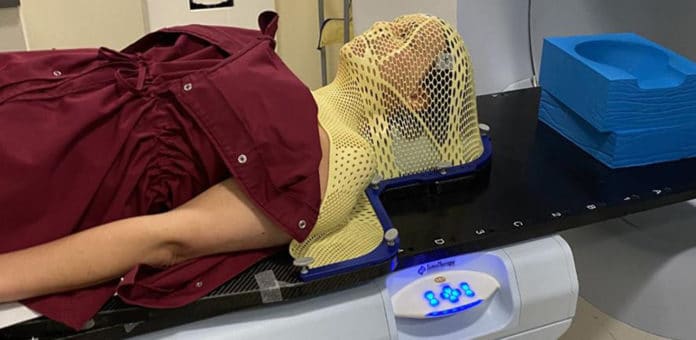Usually, scientists focus on blood tests for detecting different cancer types. These tests detect mutated DNA, shed by tumor cells when they die, known as cell-free DNA (cfDNA).
It is quite difficult to detect tumor cfDNA in the blood because of the blood-brain barrier. The blood-brain barrier separates blood from the cerebrospinal fluid (CSF) surrounding the brain and spinal cord. In this way, it prevents the passage of cfDNA.
It is well known that cfDNA can be found in blood and other bodily fluids such as urine at very low levels. The real challenge is to develop a sensitive test to detect these specific mutations.
Scientists at the Cancer Research UK Cambridge Institute have overcome the challenge by developing two tests for brain tumor diagnosis. The tests can detect glioma tumors, a type of brain tumor, inpatient urine, or blood plasma.
The first test works for patients who have recently had glioma tumors removed and biopsied. The group designed a tumor-guided sequencing test that had the option to search for the mutations found in the tumor tissue inside the cfDNA in the patient’s urine, CSF, and blood plasma.
A total of eight patients who had suspected brain tumors based on MRIs were included in this part of the study. Samples were taken at their initial brain tumor biopsies, alongside CSF, blood, and urine samples.
By knowing wherein the DNA strand to look, scientists found that it was possible to find mutations even in the tiny amounts of cfDNA found in the blood plasma and urine.
It was found that the test successfully detects cfDNA in 7 out of 8 CSF samples, 10 out of the 12 plasma blood samples, and 10 out of the 16 urine samples.
The second approach includes observing other patterns in the cfDNA that indicates the presence of a tumor. They analyzed 35 samples from glioma patients, 27 people with non-malignant brain disorders, and 26 healthy people.
The test successfully detects fragments of cfDNA in the blood plasma and urine samples. The data was later fed into a machine learning algorithm to differentiate between the urine samples of people with and without glioma.
Scientists suggested, “their tests could be used between MRI scans, and could ultimately be able to detect a returning brain tumor earlier.”
In the future, the tests are expected to be used by GPs to monitor patients at high risk of brain tumors.
Dr. Richard Mair, who is based at Cancer Research UK Cambridge Institute and the University of Cambridge, said, “We believe the tests we’ve developed could in the future be able to detect a returning glioma earlier and improve patient outcomes. Talking to my patients, I know the three-month scan becomes a focal point for worry. If we could offer a regular blood or urine test, not only will you be picking up recurrence earlier, you can also be doing something positive for the patient’s mental health.”
Michelle Mitchell, Chief Executive of Cancer Research UK, said, “While this is early research, it’s opened up the possibility that within the next decade, we could be able to detect the presence of a brain tumor with a simple urine or blood test. Liquid biopsies are a huge area of research interest because of the opportunities they create for improved patient care and early diagnosis. It’s great to see Cancer Research UK researchers making strides in this important field.”
Sue Humphreys, from Wallsall, a brain tumor patient, said: “If these tests are found to be as accurate as of the standard MRI for monitoring brain tumors, it could be life-changing.”
The next stage of this research will see the team comparing both tests against MRI scans in a trial with patients with brain tumors. If the tests prove that they can detect brain tumors earlier than an MRI, the researchers will look at how they can adapt the tests to be offered in the clinic, which could be within the next ten years.
Journal Reference:
- Florent Moliere et al. ‘Fragmentation patterns and personalized sequencing of cell-free DNA in urine and plasma of glioma patients.’ EMBO Molecular Medicine (2021). DOI: 10.15252/emmm.202012881
